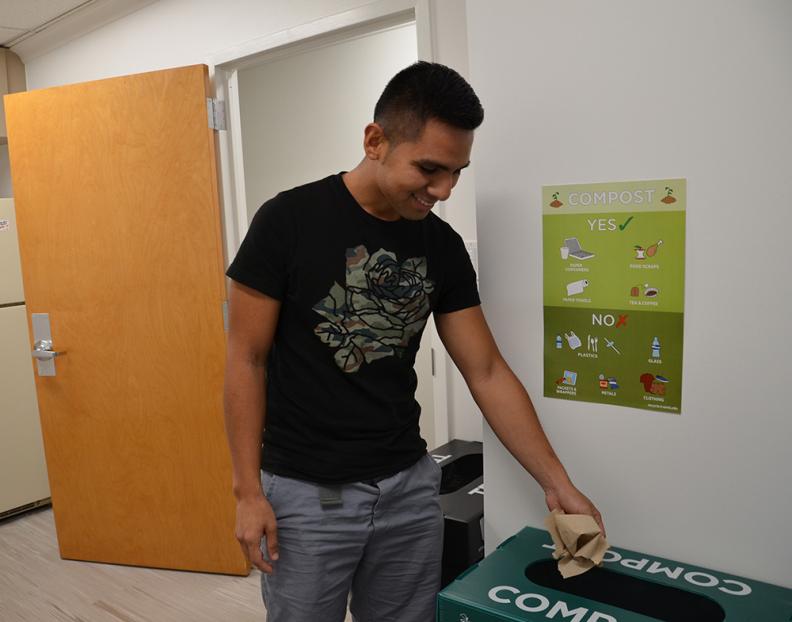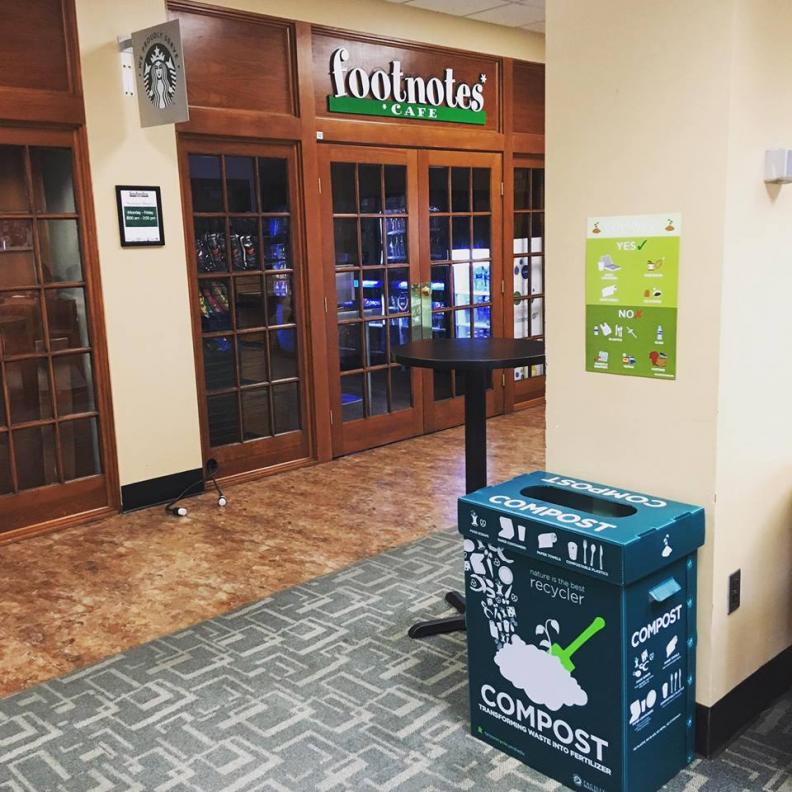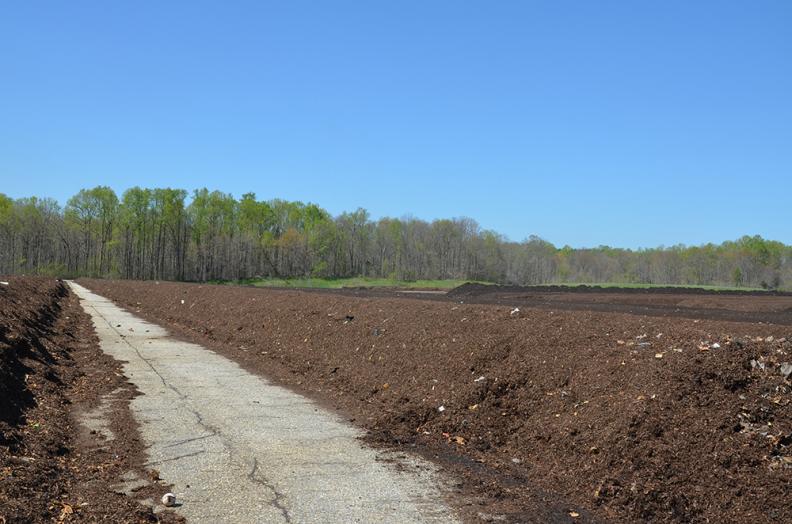
Members of the University of Maryland campus community may have noticed something different about campus recently, in addition to all the new building construction. The Office of Solid Waste and Recycling in Facilities Management has been diligently working for the past two years to expand campus compost collection and the fruits of their efforts are in full bloom.
Composting is now an option at more than 25 collections sites on campus including 12 residence halls, McKeldin Library, Edward St John Learning and Teaching Center, Maryland Stadium on game days, and the Stamp Student Union.
The increase in composting is thanks not only to the hard work of Facilities Management but also UMD students, faculty and staff, who are constantly advocating for the program to grow.
“The expansion of this program is our next step to increase the amount of waste that we divert from landfills," said Bill Guididas, assistant director, Building and Landscape Maintenance. "Over 30 per cent of the waste generated on campus is compostable and could be collected, processed, and reused as soil amendment. We’re eager to expand our already successful recycling program here at the University of Maryland.”

The compost program received a huge boost in 2015 when university students approved a Sustainability Fund grant proposal to bolster the infrastructure for collection. Since that time, students have continued to push for more campus composting while also playing an integral part in assisting with education and outreach.
“Composting is such an easy way for students, staff, and faculty to make a huge difference when it comes to reducing waste,” said Williem Klajbor, director, Student Sustainability Committee. “It has been incredible to see UMD's composting program grow during my time in College Park. This is just another great example of an important result stemming from the fantastic work done by the Office of Sustainability, Facilities Management, and the student body.”
Much like recycling, composting is becoming increasingly commonplace both nationwide and at the local level. Prince George’s County has recently ramped up efforts and both the county and university send their compost scraps to the Prince George’s County Composting Facility in Upper Marlboro, Md.

At the facility, the compost scraps are converted into fertilizer, which the county is able to sell back to its residents. One of their customers is Terp Farm, located at a university research facility in Upper Marlboro, Md. At the farm, UMD Dining Services works with the College of Agriculture & Natural Resouces to grow vegetables and herbs that are served at campus dining halls and on the Green Tidings Food Truck. The fertilizer produced from the county is used to grow the produce, completing the closed loop cycle.
"It is a thrill to see UMD close the nutrient loop with our composting program," said Allison Tjaden, assistant director, Dining Services. "We collect the food waste from campus which is composted at the Western Branch Facility and then used to grow vegetables at the Terp Farm with the help of students. Those vegetables are then delivered to campus to be used in Dining Services locations and donated to those in need through the Campus Pantry."
For more information about visit UMD compost page.